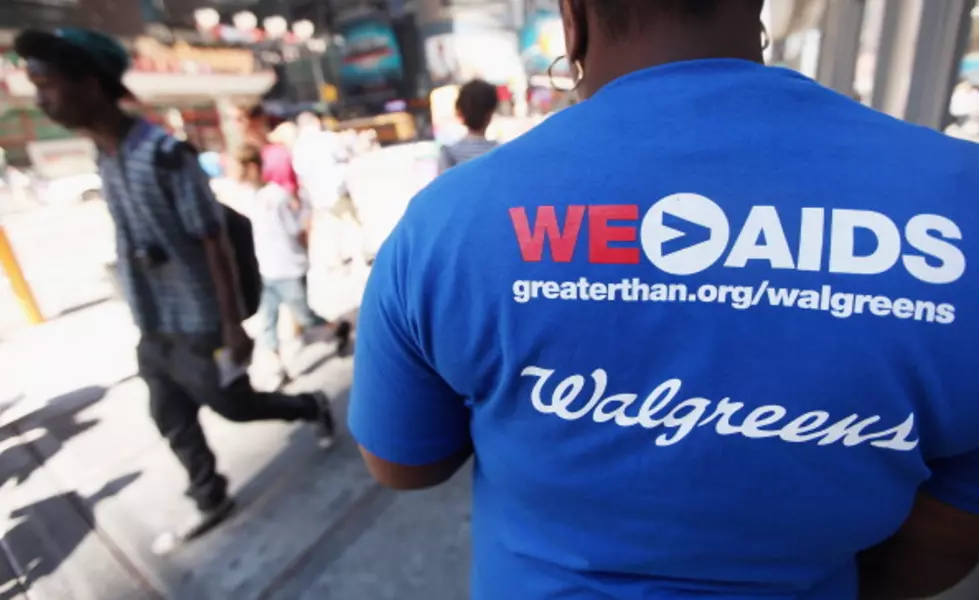
Here’s How to Get a Free HIV Test Monday in Owensboro, Henderson and Bowling Green
When I was in undergraduate school at the University of Louisville in the early 90s, I was in the Honors Program. Odd, but true fact- I have always been very intrigued by infectious disease. I'm not sure why, but I am fascinated by virology and epidemiology and jumped at the chance to take an Honors course called AIDS in Society.
Because of the nature of the subject matter in that course, enrollment was extremely limited. There was a formal application required to get into the class and then I had to go through a series of interviews with faculty and administrators as well. There were less than twenty spots available and I, luckily, got an invitation to take one of those spots. And, naturally, I did.
That class was everything I anticipated it would be. There were two professors for the course and they shared the responsibilities of teaching it. One headed up UL's School of Nursing. The other was the head of the school's Sociology Department. See the focus of the class was twofold- to study the impacts of AIDS on the physical and mental health of the individuals battling it and to study the impacts of the disease on society as a whole. For those four months, I literally could not read about, talk about, study HIV and AIDS enough. It was a gripping study in human behavior, sexuality, social stigma and shame. It was riveting and the single best class I have ever had the privilege of taking.
We've come a long way since the 80s and early 90s, when AIDS was still viewed (disgustingly, I might add) as the "Gay Plague." Treatments have advanced tremendously, though, despite what many think, there is still no cure. There are, however, various "preventatives" on the market. People living with HIV today are actually living with HIV. It's no longer the death sentence it was for its first decade-plus.
But the one thing that hasn't changed is the stigma associated with it. HIV is a disease that no one wants to talk about. Still. People remain afraid to confront the possibility that they could have the virus. I have friends who are doctors and work in prevention. They, in 2022, have patients who get offended if it's suggested they should get tested. And, look. I have friends who work for Matthew 25 AIDS Services right here in western Kentucky. Their caseload, especially when you think in terms of population ratios, is considerable and those patients represent all walks of life, all socioeconomic levels and ages and all cross-sections of sexual activity.
But there's still so much proverbial shame in the game. That's why, when I learned that Matthew 25 was teaming up with three Walgreens locations here in Kentucky to provide FREE testing on National HIV Testing Day, that I was going to go get tested. It won't be my first time.
Biologically speaking (I am assuming it's genetics, but am not entirely sure), I am someone whose blood platelet count runs on the low side. If I get an infection of any kind, that count gets even lower. Back in 2019, when I got my kidney stone and had to have surgery, the team that treated me ran blood work. My platelet count was alarmingly low. The very first question I was asked was, "Do you have HIV?" Even I, a person who has studied and read about the disease and its possible origins for years and understands that the preconceptions people have about the disease are ridiculously errant, was mildly offended that I was asked. Truth is. I didn't think I was positive. Could there be a slight possibility that I was and didn't know it? Sure.
That blood test turned out like I thought it would. I didn't have HIV and my platelet count was just behaving normally for me, which seems abnormal to anyone else. That wasn't the only HIV test I have during adulthood. It certainly won't be my last.
I don't mind talking about the disease even though most people wouldn't dream of it. I have been to the funeral of a friend who died from it. I have friends, right here in Owensboro, who have it. And, the truth is, regardless of whether you accept it, any of us could.
There's a powerful marketing campaign that encourages people to #KnowYourStatus. The only way to know your status is to get tested. Monday, June 27th is National HIV Testing Day and the perfect day to do it. At three western Kentucky Walgreens locations (Owensboro, Henderson, Bowling Green), those tests are going to be free and, yes, anonymous.
I recently chatted about National HIV Testing Day with Tina Reed, who's Director of Prevention for Matthew 25 AIDS Services. Here's what she shared with Angel and me on our radio show.
On Monday, I am going to be broadcasting live from 11am to 2pm at the testing event at Walgreen's Frederica Street location in Owensboro. I encourage you to come get tested. To help shed some of this stigma that, for me, has hindered the progress we've made against this horrific pandemic, I have agreed to get tested on the air.
Though it shouldn't be necessary, there is a small incentive to join me in getting tested. Matthew 25 AIDS Services is offering $25 gift cards to anyone who tests Monday. But, the real motivation, the real incentive, should be fact that you will leave Walgreens and you will Know Your Status.
Answers to 25 common COVID-19 vaccine questions
More From WBKR-FM









